This is a time of incredible transition for inspectors general in Illinois. Openings are coming up for the top government watchdog spots in the city of Chicago, at the Chicago Park District, in Cook County government and in the Illinois General Assembly.
But it’s only the next legislative inspector general who will take over the job with both hands and maybe a leg tied behind her or his back.
If the next legislative watchdog is to have any chance at success, Illinois lawmakers really must show they are serious about allowing their government branch to be investigated by fixing the flaws in its authority.
The legislative inspector general is the only inspector general in all of Illinois who does not have the power to issue subpoenas, and that’s just one of the flaws, notes outgoing Legislative Inspector General Carol Pope.
After 2.5 years of work and repeated attempts to persuade lawmakers to fix major flaws in the workings of the office, Pope, a retired appellate judge, announced she was stepping down by mid-December or sooner if a replacement is found. She resigned, calling the office “a paper tiger” after lawmakers refused to make key fixes as part of an ethics package this spring. For years, Pope and both her predecessors, Julie Porter and Tom Homer, have spoken up about problems in the way the office is structured. Pope initially agreed to serve on the panel seeking to find her replacement, but now also has resigned from that role because one of the applicants is someone she knows well and she did not want any appearance of favoritism.
Currently, the legislative inspector general first must ask permission to issue subpoenas from the Legislative Ethics Commission, a body made up of four Democrats and four Republicans. That commission also must vote to publish reports of wrongdoing by lawmakers and it sometimes deadlocks, leaving all of us in the dark about misbehavior in our legislative branch.
But the most significant problem, in Pope’s view, is that the jurisdictions of the legislative inspector general and the legislative ethics commission are not identical. If the legislative inspector general were to find a violation of the Illinois Governmental Ethics Act occurred, she would have nowhere to take her findings to seek redress. For example, if Pope found evidence a lawmaker committed conduct unbecoming of a public official, there is no panel empowered to impose sanctions. The ethics commission cannot pass judgment on it.
“It’s so fundamental and so in need of change. This is really what creates the paper tiger,” Pope said in an interview. Some lawmakers believe ethics violations that constitute misdemeanors should be turned over to local prosecutors, but Pope said, “C’mon, what local prosecutor is going to charge their local member of the General Assembly?”
And if the legislative inspector general wants to issue subpoenas, the officeholder is supposed to seek permission by notifying the eight ethics commissioners and their assistants, for a total of 24 people. “In the Capitol, when 24 people know something, it’s not secret anymore,” she said. “Trust me.”
The ethics package lawmakers just approved also requires a complaint be filed with the office before an investigation can occur. In other words, if you read about questionable conduct by legislative staff or a lawmaker in the media, the legislative inspector general cannot do a thing about it unless someone goes through the process of filing paperwork.
Lawmakers did make one major improvement this year by allowing the legislative inspector general to open investigations without getting commission approval first. But the other problems with how the office operates only undermine its independence and effectiveness.
The application period for the job is about to close after having been extended once, Pope said. It’s hard to believe, but heartening, that people are applying for this role after all the years of publicity about how hamstrung it is. Years ago, legislative leaders let the position sit unoccupied for three years until a sexual harassment claim against a senator brought the vacancy to light.
Illinois needs a legislative inspector general who is fully empowered to do the job with a nonpoliticized legislative ethics commission, or other body, also fully empowered to sanction those found guilty of unethical or corrupt behavior. And all those rulings should be public. It’s long overdue.
“You want the public to have trust and confidence in their legislators,” Pope said. “In the judicial branch where I come from, we can’t be a guiding light in our system unless people have trust and confidence in our system. We’ve always understood that. I want the same thing for the Legislature. I want the public to trust that the Legislature is acting without fear or favor and I don’t think they do.”
Madeleine Doubek is executive director of Change Illinois, a nonpartisan nonprofit that advocates for ethical and efficient government.
This article originally appeared on Crain’s Chicago Business.
